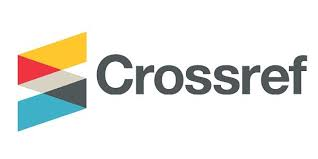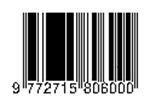MENINGKATKAN KETERAMPILAN MENGAJAR MAHASISWA PENDIDIKAN FISIKA MELALUI HYBRID MICROTEACHING
DOI:
https://doi.org/10.37478/optika.v8i2.4347Abstract
Penelitian ini bertujuan untuk mengevaluasi keterampilan mengajar mahasiswa pendidikan fisika melalui pendekatan hybrid microteaching yang menggabungkan pembelajaran tatap muka dan daring. Metode penelitian melibatkan dua siklus microteaching dengan sampel 17 mahasiswa semester 6, menggunakan instrumen penilaian keterampilan mengajar yang mencakup aspek seperti membuka dan menutup pelajaran, menjelaskan, bertanya, dan mengelola kelas. Hasil siklus pertama menunjukkan keterampilan mengajar berada dalam kategori "Cukup," dengan beberapa aspek memerlukan peningkatan. Siklus kedua memperlihatkan peningkatan signifikan, dengan sebagian besar keterampilan beralih ke kategori "Baik" atau "Sangat Baik," khususnya dalam membimbing diskusi dan mengajar kelompok kecil. N-Gain menunjukkan peningkatan keterampilan yang bervariasi, dengan beberapa keterampilan mengalami peningkatan tinggi. Kesimpulannya, metode hybrid microteaching efektif dalam meningkatkan keterampilan mengajar, namun masih diperlukan pengembangan lebih lanjut dalam aspek variasi pembelajaran.
Downloads
Keywords:
Hybrid Microteaching, Keterampilan Mengajar, Pembelajaran CampuranReferences
Banga, C. L. A. L. (2014). Microteaching, An Efficient Technique For Learning Effective Teaching Chaman Lal Banga, Assistant Professor (Education), Department of Education, ICDEOL, Himachal Pradesh University Shimla,. An International Peer Reviewed Scholarly Research Journal for Interdisciplinary Studies, 2(15), 2206–2211.
Cerruto, A., Moroney, R., Ngugi, N., Watts, K., Whelan, J., Portnoy, C., Lotito, S., Singh, S., Barbour, F., & Bucco, A. (2023). Microteaching Lesson Study: Its Impact on the Development of Self-Efficacy with Teachers-in-Training in a Community-Based Outreach Program. Creative Education, 14(06), 1153–1168. https://doi.org/10.4236/ce.2023.146073
Danday, B. A. (2019). Active vs. Passive microteaching lesson study: Effects on Pre-service Teachers’ Technological Pedagogical Content Knowledge. International Journal of Learning, Teaching and Educational Research, 18(6), 181–200. https://doi.org/10.26803/ijlter.18.6.11
Danday, B. A., & Monterola, S. L. C. (2019). Effects of microteaching multiple-representation physics lesson study on pre-service teachers’ critical thinking. Journal of Baltic Science Education, 18(5), 692–707. https://doi.org/10.33225/jbse/19.18.692
Derlina, D., Bunawan, W., & Sabani. (2023). Profile of Physics Teacher Candidates’ Teaching Skills in Microteaching Course with Project-Based Learning. Jurnal Penelitian Pendidikan IPA, 9(10), 8407–8414. https://doi.org/10.29303/jppipa.v9i10.5422
Gultom, J. R., Sundara, D., & Fatwara, M. D. (2022). Pembelajaran Hybrid Learning Model Sebagai Strategi Optimalisasi Sistem Pembelajaran Di Era Pandemi Covid-19 Pada Perguruan Tinggi Di Jakarta. Mediastima, 28(1), 11–22. https://doi.org/10.55122/mediastima.v28i1.385
Haryanto, Z., Efwinda, S., Sulaeman, N. F., & Sholeh, M. (2024). Factors of Shaping Pedagogical Content Knowledge Self-efficacy for Preservice Physics Teachers Throughout Microteaching Course. 14(4), 351–358. https://doi.org/10.47750/pegegog.14.04.32
Hikmawati, & dkk. (2020). Tugas Berbasis Proyek untuk Melatih Keterampilan Mengajar Mahasiswa Calon Guru. Journal Of Teacher Education, 1(2), 103–110
Koross, R. (2016). Micro Teaching an Efficient Technique for Learning Effective Teaching Skills: Pre-service Teachers’ Perspective. IRA International Journal of Education and Multidisciplinary Studies (ISSN 2455–2526), 4(2), 289. https://doi.org/10.21013/irajems.v4.n2.p7
Martawijaya, M. A., Wahyuni, A. S. A., & ... (2020). Performance Of Pre-Service Physics Teachers On Microteaching Based On Science Literacy And Local Wisdom. … Conference on Science …, 1204–1219.
Mohamad Nazri, N. Z., & Mat Zaki, M. R. (2023). The Flexibility in a Hybrid Learning Environment After Covid-19: a Concept Paper. International Journal of Education, Psychology and Counseling, 8(52), 143–149. https://doi.org/10.35631/ijepc.852012
Mujais, A., Haryani, S., & Elianawati. (2019). The Analysis of Microteaching In Improving Teaching Skill Of Pre-Service Physics Teachers. Journal of Innovative Science Education, 8(3), 344–348.
Mukuka, A., & Alex, J. K. (2024). Review of research on microteaching in mathematics teacher education: Promises and challenges. Eurasia Journal of Mathematics, Science and Technology Education, 20(1), 1–15. https://doi.org/10.29333/ejmste/13941
Spelman, B. J., & John-Brooks, C. S. (1972). Microteachiing and Teacher Education: A Critical Reappraisal. The Irish Journal of Education / Iris Eireannach an Oideachais, 6(2), 73–92.
Taruli, D., Anakampun, R., Samosir, T., Nababan, A., & Widiastuti, M. (2023). Development of Microteaching Guide Book Based on Hybrid Learning to Improve Teaching Skills of Prospective Teachers. AL-ISHLAH: Jurnal Pendidikan, 15(3), 2725–2732. https://doi.org/10.35445/alishlah.v15i3.2919
Tawil, M., Tampa, A., Said, M. A., & Suryansari, K. (2022). Exploration the skills of teachers: Implementation technological pedagogical content knowledge. Cypriot Journal of Educational Sciences, 17(12), 4713–4733. https://doi.org/10.18844/cjes.v17i12.8593
Downloads
Published
How to Cite
Issue
Section
License
Copyright (c) 2024 Adrianus Nasar, Antonia Fransiska Laka

This work is licensed under a Creative Commons Attribution-NonCommercial-ShareAlike 4.0 International License.
Jurnal Lesensi










